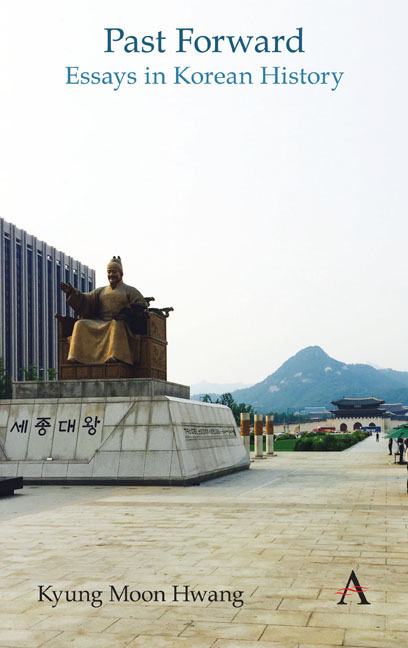Book contents
- Frontmatter
- Contents
- List of Figures
- Foreword
- Chronologies of Korean History
- Themes
- Acknowledgments
- Note on Romanization and Spelling
- Part I Circulating History
- Part II Durable Traditions
- Part III Ancient Remains
- Part IV Dynastic Depths
- Part V Modern Origins
- Part VI Challenges of Nationhood
- Part VII History Makers
- 41 Demythologizing King Sejong the Great
- 42 Modern Lady Shin Saimdang
- 43 Five Potential National Heroes
- 44 A Portrait of Great Painters
- 45 Four Young Men from 1884
- 46 Na Hye-seok
- 47 Hyundai Motors and Chung Ju-yung
- 48 Yun Isang and the East Berlin Case
- 49 Ri Young-hee, Iconoclast for Democracy
- 50 Kim Young Sam's Broad Historical Appeal
- 51 Kim Dae Jung's Historic Election
- Part VIII External Presences
- Part IX Trials of Modernization
- Part X Gripped by the Past
- Index
42 - Modern Lady Shin Saimdang
from Part VII - History Makers
- Frontmatter
- Contents
- List of Figures
- Foreword
- Chronologies of Korean History
- Themes
- Acknowledgments
- Note on Romanization and Spelling
- Part I Circulating History
- Part II Durable Traditions
- Part III Ancient Remains
- Part IV Dynastic Depths
- Part V Modern Origins
- Part VI Challenges of Nationhood
- Part VII History Makers
- 41 Demythologizing King Sejong the Great
- 42 Modern Lady Shin Saimdang
- 43 Five Potential National Heroes
- 44 A Portrait of Great Painters
- 45 Four Young Men from 1884
- 46 Na Hye-seok
- 47 Hyundai Motors and Chung Ju-yung
- 48 Yun Isang and the East Berlin Case
- 49 Ri Young-hee, Iconoclast for Democracy
- 50 Kim Young Sam's Broad Historical Appeal
- 51 Kim Dae Jung's Historic Election
- Part VIII External Presences
- Part IX Trials of Modernization
- Part X Gripped by the Past
- Index
Summary
Shin Saimdang, a figure from the sixteenth century, has become a hot topic, even glamorized by a television historical drama in 2016 that reimagined her life and connected it, through the reliable evocation of reincarnation, to the present day. A slew of novels, children's books, and academic works has also fueled this popularity, as has undoubtedly the circulation of the 50,000-won banknote that bears her image. Leisure and entertainment culture, consumerism, and increasing wealth, in other words, have helped laid the basis for her meteoric rise, as if she were some Hallyu star.
She might as well be. The opening episodes of that television series suggested another example of modernizing, through popular reinvention, a female figure from the distant past. In this case, Lady Shin was refashioned into the opposite of what she was earlier embraced for: a filial and learned daughter and wife, and the wise mother of the great philosopher Yulgok. Those qualities did not disappear in this television drama, but the greater motive was to show her as a daring and ingenious artist who pursues her true passions in the face of societal and familial constraints. She became, in short, the idealized everywoman of South Korea today.
Such an exaggerated portrayal might be objectionable, but this had been going on for a while. Just a few years earlier, Empress Gi, the Korean-born wife of the Mongol emperor in the fourteenth century, was reconceived by television as a male-masquerading teenager who then turns into a fierce Korean nationalist. And back in 2009, Queen Seondeok, the first female monarch of the ancient Silla kingdom, underwent the Hallyu treatment and emerged as a cross-dressing, visionary, socialist unifier who juggled complex romantic feelings.
Not as far-fetched but just as creative was the historical drama that perhaps started it all, the “Jewel in the Palace” (Daejanggeum) television series of the early 2000s that became a megahit across Asia, especially in China, and starred the same actress who later played Lady Shin. This dramatized profile of a low court lady, whose wit, skill and perseverance takes her from menial cook to status as a royal physician, highlighted the glories of traditional cuisine, medicine, and values, to be sure.
- Type
- Chapter
- Information
- Past ForwardEssays in Korean History, pp. 124 - 126Publisher: Anthem PressPrint publication year: 2019



